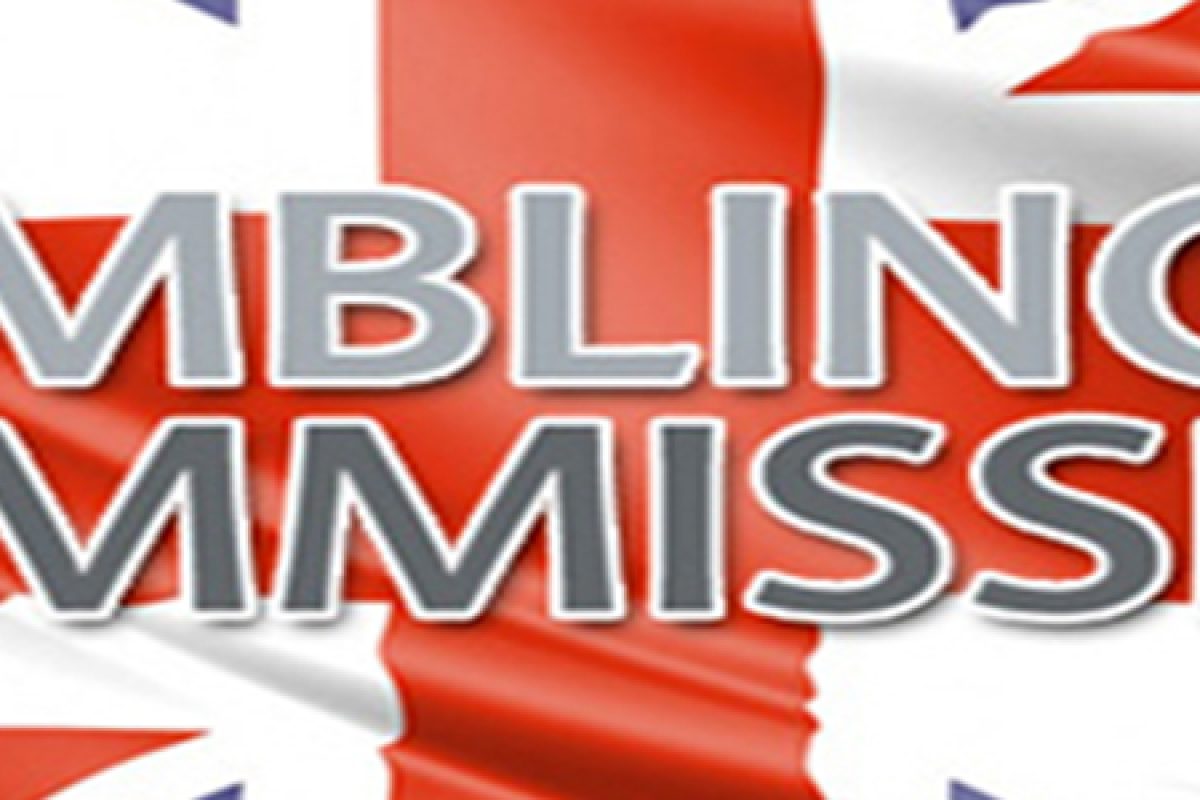Online gambling business Betway is to pay £11.6m, alongside implementing a package of measures, for a series of social responsibility and money laundering failings linked to dealings with seven of its high spending customers.
In one instance, the operator failed to carry out source of funds checks on a ‘VIP’ customer who deposited over £8m and lost over £4m during a four-year period. In another, Betway failed to carry out effective social responsibility interactions with a customer who deposited and lost £187,000 in two days.
The investigation found that as a result of a lack of consideration of individual customers affordability and source of funds checks the operator allowed £5.8m of money to flow through the business which has been found, or could reasonably be suspected to be, proceeds of crime. The majority of this money will now be divested and returned to victims.
The regulator probe also revealed inadequate management oversight and investigations into responsible Personal Management Licence holders are ongoing.
Richard Watson, Executive Director at the Gambling Commission, said: “The actions of Betway suggest there was little regard for the welfare of its VIP customers or the impact on those around them.”
Mr Watson said today’s case illustrated why operators’ management of high value customers must change and why the industry must do everything to interact with customers responsibly.
He said: “As part of our ongoing programme of work to make gambling safer we are pushing the industry to make rapid progress on the areas that we consider will have the most significant impact to protect consumers. The treatment and handling of high value customers is a significant piece of that work and operators are in no doubt about the need to tackle the issue at speed.
“We have set tight deadlines for when we expect to see progress and if we do not see the right results then we will have no choice but to take further action. This case highlights again why progress needs to be made.”
Gambling Commission Chief Executive Neil McArthur set the industry tough challenges last October as part of a drive to make gambling in Britain safer. One of those focussed on the incentivisation of high value customers. Industry-led working groups, supported by the Betting and Gaming Council, are also focusing on ethical game design and the use of advertising technology.
Read public statement below.
Betway Ltd public statement Regulatory Settlement
Anti- Money Laundering:
Licence condition 12.1.1 Licence condition 12.1.2 Responsible Gambling:
Social Responsibility code provision 3.4.1 March 2020
Operators are expected to consider the issues here and review their own practices to identify and implement improvements in respect of the management of customers.
Introduction
Licensed gambling operators have a legal duty to ensure that their gambling facilities are being provided in compliance with the Gambling Act 2005 (the Act), the conditions of their licence and in accordance with the licensing objectives, namely to:
prevent gambling from being a source of crime or disorder, being associated with crime or disorder or being used to support crime ensure that gambling is conducted in a fair and open way protect children and other vulnerable people from being harmed or exploited by gambling.
1. Executive Summary
This case concerns Betway Limited (Betway) which holds a Combined Remote Operating Licence.
The Commission investigated Betway’s handling of seven customers’ accounts, predominantly treated as VIPs, following complaints from customers and reports from other agencies. Three customers had been the subject of police investigations and, following these investigations, it was established that stolen money had been spent on online with Betway.
We found systemic historical failings in the way Betway identified and interacted with customers who were at higher risk of money laundering and problem gambling.
These failings stemmed from inadequate anti-money laundering (AML) and social responsibility policies and processes and senior management oversight. This meant Betway had ineffective controls to identify and interact with customers who may have been at risk of suffering gambling harm or money laundering.
In one instance, the operator failed to carry out source of funds checks on a VIP customer who deposited over £8m and lost over £4m over a four-year period. In another, Betway did not carry out effective social responsibility interactions with a customer who deposited and lost £187,000 in two days.
Betway has cooperated with our enquiries and has acknowledged and accepted there were shortcomings in the application of its AML controls and its policies and procedures, the effectiveness of its policies and procedures for customer interaction and senior management oversight It has accepted that it failed to act in accordance with the Licence Conditions and Codes of Practice (LCCP) between 1 November 2014 – March 2019.
In line with our Statement of principles of licensing and regulation, Betway will pay a total of £11.6m consisting of £5.8m payment in lieu of a financial penalty and will divest a total of £5.8m gained as a result of these findings.
2. Findings
Failure to identify problem gambling behaviour
Social responsibility (SR) code provision 3.4.1(1)
Licensees must put into effect policies and procedures for customer interaction where they have concerns that a customer’s behaviour may indicate problem gambling. The policies must include:
(e) specific provision for making use of all relevant sources of information to ensure effective decision making, and to guide and deliver effective customer interactions, including in particular:
(i) provision to identify at risk customers who may not be displaying obvious signs of, or overt behaviour associated with, problem gambling: this should be by reference to indicators such as time or money spent
(ii) specific provision in relation to customers designed by the licensee as “high value”, “VIP”, or equivalent
Betway has accepted between November 2014 and November 2017 it did not have effective policies and procedures in place for customers who may be displaying signs of problem gambling. For example, this was because:
A customer interaction policy was not implemented until April 2015 Until January 2017, the customer interaction policy did not have a specific provision for VIP customers The policies and procedures in place did not always prompt effective interactions where customers may be displaying signs of problem gambling interactions, and decisions not to interact, may not have been adequately recorded
Failure to prevent money laundering
The Commission’s investigation identified weakness in Betway’s AML controls between 2014 and 2018, and found breaches of the following licence conditions:
(a) Licence condition attached to the operating licence in October 2014 (valid from 1 November 2014), superseded by licence condition 12.1.2
The condition attached in October 2014 and licence condition 12.1.2 (1) requires:
Licensees to put into place and implement the measures described in Parts 2 and 3 of the Money Laundering Regulations 2007 (superseded by the 2017 Regulations), insofar as they relate to casinos.
Betway has accepted that between November 2014 and December 2018 it failed to put in place and implement the measures described in the Money Laundering Regulations 2007 and of the Money Laundering Regulations 2017. This was because:
The Licensee failed to conduct sufficient ongoing monitoring of its business relationship with the customers, contrary to regulation 8 of the 2007 Regulations.
At the time of the customers spend the Licensee failed to apply enhanced customer due diligence and enhanced ongoing monitoring on a risk-sensitive basis contrary to regulation 14 of the 2007 Regulations and regulation 33 of the 2017 Regulations.
The Licensee failed to keep full records of the evidence and supporting documents it considered as part of its customer due diligence checks and business relationship with the customer contrary to Regulation 19 of the 2007 Regulations
The Licensee failed to establish and maintain appropriate and risk-sensitive policies and procedures relating to specified matters (including the monitoring and management of compliance with such policies and procedures) in order to prevent activities related to money laundering and terrorist financing contrary to Regulation 20 of the 2007 Regulations and Regulation 19 of the 2017 Regulations
The Licensee failed to have an appropriate Money Laundering and Terrorist Financing risk assessment in place contrary to Regulation 18 of the 2017 Regulations
The Licensee failed to apply adequate customer due diligence measures which include, but are not restricted to, ongoing monitoring of a business relationship, scrutiny of transactions, SOF checks where necessary and undertaking reviews of existing records and keeping documents obtained for CDD purposes up to date contrary to Regulations 27 and 28 of the 2017 Regulations
(b) Licence condition 12.1.1 relates to the Prevention of Money Laundering and Terrorist Financing
Licence condition 12.1.1(1) requires:
Licensees must conduct an assessment of the risks of their business being used for money laundering and terrorist financing. Such risk assessment must be appropriate and must be reviewed as necessary in the light of any changes of circumstances, including the introduction of new products or technology, new methods of payment by customers, changes in the customer demographic or any other material changes, and in any event reviewed at least annually.
Licence condition 12.1.1(2) requires:
Following completion of and having regard to the risk assessment, and any review of the assessment, licensees must ensure they have appropriate policies, procedures and controls to prevent money laundering and terrorist financing.
Licence condition 12.1.1(3) requires:
Licensees must ensure that such policies, procedures and controls are implemented effectively, kept under review, revised appropriately to ensure that they remain effective, and take into account any applicable learning or guidelines published by the Gambling Commission from time to time.
Betway has accepted that between November 2014 and December 2018 it did not have adequate AML controls to consistently address the risks presented by higher risk customers. This is because:
The risks assessments were not appropriate
The AML policies and processes in place were not effective
The policies, procedures and controls were not appropriate to adequately mitigate the risks identified – particularly the monitoring and review of customers to ensure the proceeds of crime were not being spent on the Licensee’s website.
There was a lack of adequate documentation and audit trail of account reviews which did take place, and this further reduced the effectiveness of the controls.
During our investigation we identified failings in accounts held by seven customers between November 2014 and December 2018. Betway has agreed to undertake a full assessment of its top 25 customers by GGY and top 25 customers by deposit for years 2015, 2016, 2017 and 2018 and, where any similar failings are identified, additional divestments will be made where appropriate. This is also the case for any further customers brought to their attention if failings are identified for this time frame.
Examples of failings
Some examples of the identified AML and SR failings and how they impacted customers are as follows:
Customer A held 11 separate accounts with Betway. The customer deposited more than £494,000 over a period of 1 year and 5 months, £300,000 of which was over 5 months, and was the subject of 18 reviews by Betway’s risk and fraud team. Betway did not undertake any checks to establish Customer A’s source of funds as the customer failed to trigger any of Betway’s financial thresholds in place at the time.
Customer A has subsequently been convicted of Fraud. Customer A also displayed signs of problem gambling having self-excluded on a number of occasions, one of which followed depositing and losing over £50,000 in a single day. Betway could not provide evidence of any social responsibility interactions being carried out with this customer.
Customer B was one of Betway’s top GB customers, depositing over £8m over a 4-year period. Betway initially undertook open source checks to establish the customers’ source of funds but were unable to verify their employment and relied upon the requested information communicated by the customer to the VIP Manager to establish their source of funds. Betway failed to independently verify the information.
Customer B triggered a further 20 financial thresholds and on each occasion the account was referred for review. An employee of Betway confirmed they were satisfied with Customer B’s source of funds on each occasion without requesting any further evidence from the customer to support this. Betway only requested that Customer B provide evidence of their source of funds over two years after its initial review of the account. At this point, Customer B stated that they were unable to provide the requested information and at this time Betway should have locked their account in line with its policy at the time.
Betway subsequently commissioned an external report to investigate the customer’s source of funds and their financial circumstances. Customer B was free to continue gambling whilst the report was produced. The external report failed to establish the customer’s source of funds. At this time, the account was referred to Betway’s Board who agreed to continue the relationship with the customer. The customer triggered a further 33 financial thresholds before the account was shut following the police contacting Betway. The customer also triggered 51 customer interaction thresholds however, Betway only undertook 12 interactions during its relationship with the customer.
Customer C deposited £1.6m and lost more than £700,000 over 3 years. The Commission understands the customer was unemployed during their relationship with Betway. Betway relied undertook open source checks and unverified information provided by the customer regarding the company they worked for to establish the customer’s source of funds and employment. No subsequent independent checks were conducted to establish whether this was correct. The customer triggered a further 9 financial thresholds and Betway continued to rely on the initial information as part of its ongoing monitoring of the customer. The customer’s account was closed by Betway following allegations from the customer the funds they were gambling with did not belong to them.
Customer D deposited over £1m and lost more than £270,000. The customer provided Betway with evidence of their source of funds which Betway reviewed this information and was satisfied it established the customer’s source of funds. This customer has subsequently been convicted of stealing funds from his employer. Betway failed to undertake sufficient checks to verify the evidence provided, despite: the customer’s level of activity and spend not being supported by their level of salary the fact they were using a business account to fund their gambling the customer’s account showing an address which did not match either the customer’s bank account or the business linked to the bank account Betway having identified concerns such as payday loans in the customer’s bank statements
Customer E deposited and lost £187,000 in two days. During this time, they triggered one of Betway’s AML threshold triggers and, as a result, open source checks were undertaken by one of Betway’s third party providers. The third party advised source of funds for this customer had not been verified and further checks should be undertaken. A Betway employee reviewed the information provided by the third party and decided no further information was required. It appears the customer had no regular source of income and the majority of their gambling was funded from monies inherited as well as redeposited gambling winnings. Following the customer’s losses, Betway undertook an interaction via email and following a request by the customer was contacted by a VIP Manager later the same day. Responsible gambling controls were discussed with the customer and their account remained open following confirmation from the customer that there were no issues. Betway contacted the customer again the following day after a family member of the customer raised concerns with Betway. The customer eventually requested to self-exclude during this interaction.
Customer F deposited over £200,000 within 21 days and withdrew the same amount. Know your customer checks had been undertaken by Betway however it did not adequately evaluate other material supplied by the customer to establish their source of funds. The customer later deposited over £450,000 in a month and Betway failed to undertake any customer interactions with the customer over this period.
Customer G deposited £299,000 over 11 days and lost more than £80,000. Betway undertook open source checks on the customer however, it did not undertake sufficient checks to verify the information related to its customer. Betway requested the customer provide documents to support their source of funds, however this information was not provided until after the customer had withdrawn £200,000. Having reviewed the documents Betway became concerned as to the customer’s source of funds and closed the account. The customer has subsequently been convicted of Fraud.
3. Actions taken by the Licensee
In addition to accepting these failings, Betway has committed to the following:
An independent review of current policies and processes, its operation, resourcing, quality control and oversight.
A compliance led review of all current / active UK customers who have not been reviewed in the past six months and review applying its current processes for Anti-Money Laundering and social responsibility. It will dip-sample to test the robustness of the review.
A full assessment of its top 25 customers by GGY and top 25 customers by deposit for years 2015, 2016, 2017 and 2018 to consider whether any of the failings identified are evidenced and if so, to divest the GGY where appropriate.
Review any new high or higher risk customers as may be identified by the Commission. Any recommendations arising out of these reviews will be fed back into the improvements that could be made to current processes and dealing with divestment.
A review of the next 12-month compliance development road maps. Ensure that all personal management licence holders, senior management and key control staff undertake outsourced Anti-Money Laundering and social responsibility training. 4. Regulatory Settlement
This settlement consists of:
1. £5.8m payment in lieu of a financial penalty which will be directed towards delivering the National strategy to Reduce Gambling Harms.
2. A divestment totalling £5.8m the majority of which to go to victims where it has been found, or could reasonably suspected to be, proceeds of crime.
3. Betway to undertake the following within a reasonable time and report the findings to the Commission:
An independent review of current policies and processes, its operation, resourcing, quality control and oversight. A compliance led review of all current / active UK customers who have not been reviewed in the past six months and require review applying its current processes for Anti-Money Laundering and social responsibility. It will dip-sample to test the robustness of the review.
A full assessment of its top 25 customers by GGY and top 25 customers by deposit for years 2015, 2016, 2017 and 2018 to consider whether any of the failings identified are evidenced and if so, to divest the GGY accordingly. Review any new high or higher risk customers as may be identified by the Commission. Any recommendations arising out of these reviews will be fed back into the improvements that could be made to current processes and dealing with divestment.
A review of the next 12-month compliance development road maps. 4. Agreement to the publication of a statement of the facts in relation to this case.
5. Payment of £18,940 towards the Commission’s costs of investigating the case.
In considering an appropriate resolution to this investigation, the Commission has had regard to the following aggravating and mitigating factors:
Aggravating
The breaches lasted four years The systemic nature of the breaches and the potential this may mean other customers not known to us were affected. The breaches arose in circumstances similar to previous cases the Commission has dealt with which resulted in the publication of lessons to be learned for the wider industry and statements at the raising awareness seminars The involvement of relevant middle and senior management The impact on customers and the general public The awareness and involvement of the Licensee’s board The need to encourage compliance by other operators with these requirements
Mitigating
Betway has now put in place new resources, policies and PML holders, and is engaging with the Commission regarding improvements being implemented. Betway has taken steps to remedy the breaches and has outlined a review it will be undertaking. Betway has fully cooperated with the Commission’s investigation.
5 Good practice
Gambling operators should take account of the failings identified in this investigation to ensure industry learning. Operators should consider the following questions:
Are your policies and procedures for identifying high risk customers for AML and SR effective? Have you adequately resourced your AML and SR departments, so your staff are able to put your policies and processes in place for all customers at all times? Are you recording all customer interactions, including decisions not to interact with customers, and are these records available for colleagues to refer to when making decisions? Are your customers providing documentation to support their level of spend and loss, and not simply giving verbal or email assurances, for example?
class=”uk-article-lead”>Source









